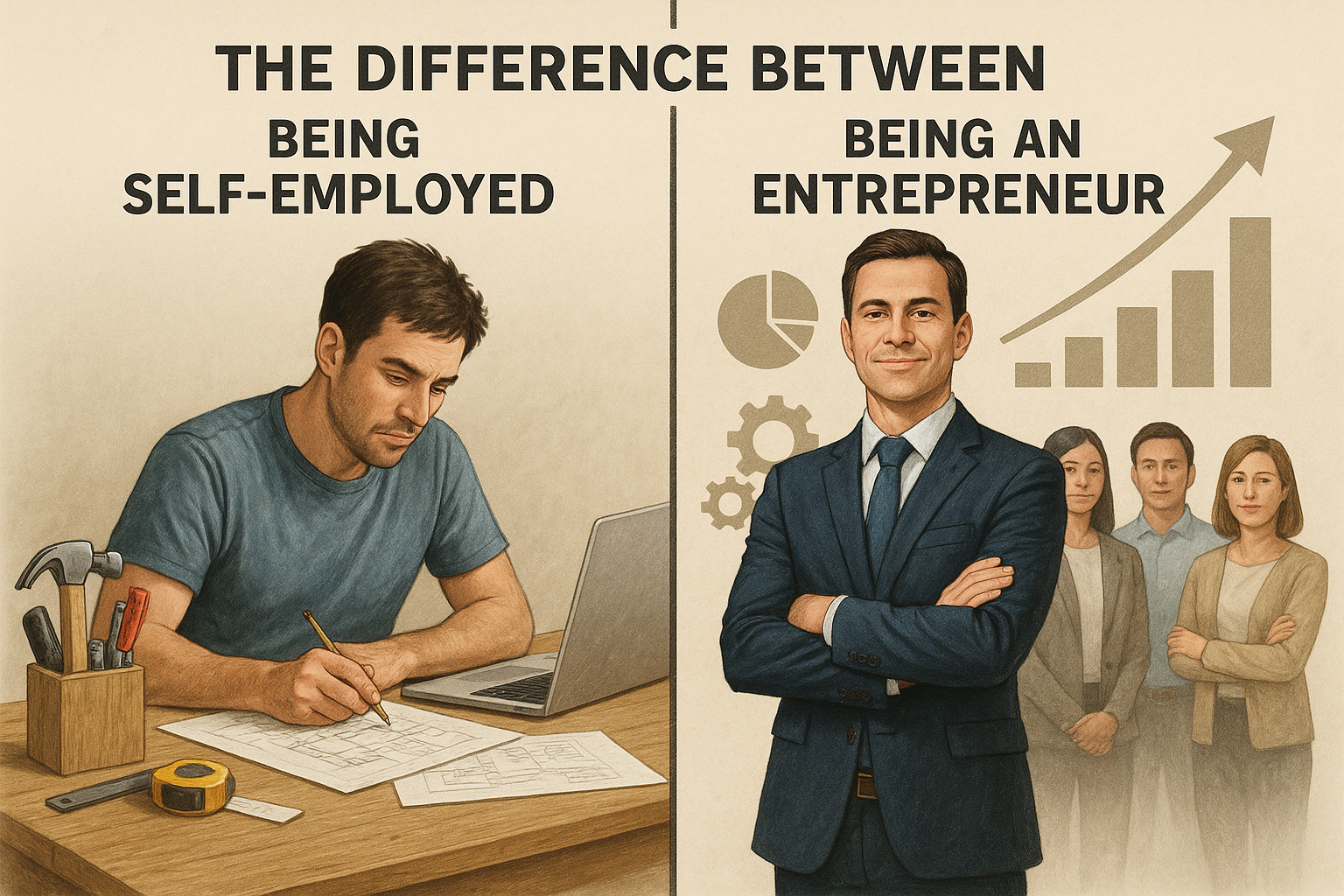Many people use the terms self-employed and entrepreneur interchangeably, but they are not the same. While both involve working independently and running your own business, the mindset, goals, and long-term strategies differ greatly.
Understanding the difference can help small business owners decide how they want to grow and position themselves in the future.
What It Means to Be Self-Employed
Being self-employed means you own your job—you directly trade your time and skills for income. Examples include freelancers, consultants, and local service providers.
Characteristics of self-employment:
- Income depends on personal effort.
- Limited scalability (you only have so many hours in a day).
- Focus is on delivering services, not building systems.
- More independence but also more personal responsibility.
Self-employment offers freedom, but it also limits growth.
What It Means to Be an Entrepreneur
Entrepreneurs focus on building businesses that operate beyond their personal effort. Instead of owning just a job, they build systems, teams, and structures that generate income even without their constant involvement.
Characteristics of entrepreneurship:
- Focus on creating scalable business models.
- Delegation and team-building are priorities.
- Vision for long-term growth and innovation.
- Business generates income without direct exchange of time for money.
Entrepreneurs aim to build assets that grow in value over time.
Key Differences
1. Work vs. Systems
- Self-employed: Works in the business.
- Entrepreneur: Works on the business.
2. Income Model
- Self-employed: Income stops if they stop working.
- Entrepreneur: Business continues to generate income with systems or teams.
3. Risk and Reward
- Self-employed: Lower risk but also lower scalability.
- Entrepreneur: Higher risk but greater growth potential.
4. Mindset
- Self-employed: Focused on personal skills and independence.
- Entrepreneur: Focused on innovation, growth, and creating value beyond themselves.
Can You Be Both?
Yes. Many entrepreneurs start as self-employed professionals. For example:
- A freelance designer who hires a small team becomes the owner of a design agency.
- A self-employed baker who opens multiple stores and hires staff becomes an entrepreneur.
The journey often starts with self-employment and grows into entrepreneurship.
Which Path Should You Choose?
It depends on your goals and lifestyle.
- Choose self-employment if you want independence, flexibility, and direct control over your work.
- Choose entrepreneurship if you want to build something scalable, create jobs, and grow beyond your own effort.
Neither path is better—it’s about aligning with your personal vision of success.
Final Thoughts: From Job Owner to Business Builder
The main difference between being self-employed and being an entrepreneur lies in scale and mindset. Self-employed individuals own their work, while entrepreneurs build businesses that can grow independently of them.
If you’re self-employed today, consider whether you eventually want to transition into entrepreneurship. Building systems, delegating, and focusing on scalability can move you from owning a job to owning a true business.
Remember: both self-employment and entrepreneurship bring freedom and responsibility—it’s up to you to decide how far you want to grow.
